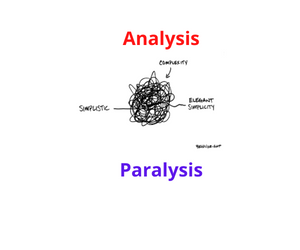A recent New York Times article on an on-going saga at the Italian bank Monte dei Paschi di Siena (MPS) caught my eye. Of course former prime minister, Silvio Berlusconi, has set the bar very high for unethical and generally repugnant behaviour and the general weaknesses of banks in the PIGS (Portugal, Ireland, Greece and Spain) are well documented. This tale though raises some interesting issues.
The story (for the original, full version, click here)
MPS seems to have had several weaknesses, however one particular deal seems to have been the straw that broke the camel’s back and then led to a scramble, with dubious trades being piled on top. The catalyst was the late 2007 purchase of Anotonveneta from Santander. The price was steep and in a difficult market questionably high. The Italian Central Bank had no power to veto the trade, or even to fire any directors, however it did force MPS to raise more capital.
As markets weakened into 2008, MPS’s balance sheet was very week. A legacy transaction it had done with Deutsche Bank involving shares in an MPS group company, San Paolo Di Torino, suddenly showed losses on a mark-to-market basis. Additional layers of trades were piled on top of the original ones. It appears that MPS were then very selective in showing the actual status of all the trades in their reporting, simply not reporting the losses on one of them.
Separately, MPS found itself owning some very exotic derivatives, called CDO Squareds. These deals showed losses of north of $200 million. Not wanting to have to report these losses, additional layers of trades were also piled on top of this investment, this time with Nomura.
Both sets of deals were deemed sufficiently sensitive that the two banks involved asked MPS whether auditors and regulators had been informed of the transaction details. It seems some form of assurance was given.
Lessons Learned: “Normal”, again. The purchase price of Antonveneta gave the seller Santander a 60% profit in a matter of months. That really is not normal. Perhaps one or more people in the chain did very nicely thank of you out of that. Nonetheless, shareholders really do need to ask more questions. If they did, then they really deserve what they got.
“Regulators’ powers”. I am surprised by the statement that the Italian Central Bank has no power to fire directors and no apparent means to address concerns when it thinks risk management is weak. Firstly, both board and senior management positions should be subject to approval. I know this is the case in Switzerland and in the UK there are roles considered as “code” roles subject to FSA, now the Financial Conduct Authority (the FCA) under the Bank of England, approval. Secondly, if there are concerns, then it strikes me that the regulator has a couple of sticks that they ought to use. First, banning new transactions above a certain size or making them subject to approval and secondly, taking the licence away.
“Trust vs. Control”. There is an expression: “Trust is good, control is better.” In these cases, it seems both Deutsche Bank and Nomura asked the right questions about board and auditor approval. What is not clear is whether they received something in writing that evidenced the approval. Often in completing documentation, there is a requirement for something called “proof of capacity and authority”; a document that proofs that the person signing the documents has the capacity and authority to enter into the transaction. I am not sure when this entered into popular practice, however it must have been since the landmark case of Hammersmith and Fulham Borough council from the late eighties (For more, click here), when the council was able to walk away from deals with banks based on the notion that the people signing deals were not authorised to do so and the transactions were not in the normal scope of council activities. Written confirmation of capacity and authority, as well as appropriate approvals, are a good control.
A personal request: The book of the Blog is in the works. Your support would be appreciated on two fronts:
- Please subscribe, if you don’t already.
- Please share this with a friend or two and ask them to subscribe too.
If the comments are wide of the mark and not offering anything of use, please comment or make contact directly via E-Mail.
Share on:



